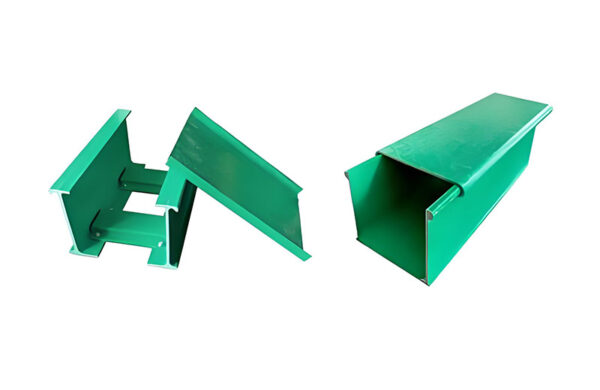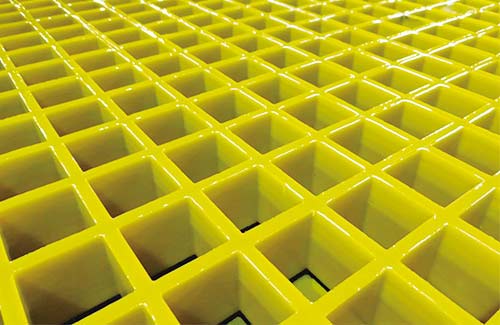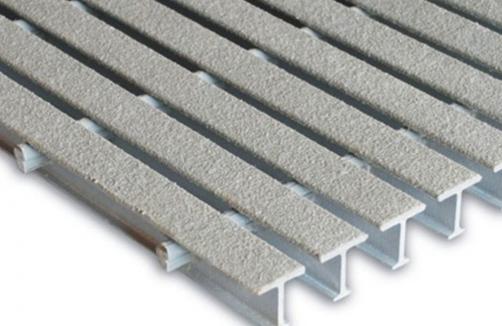Exploring the Benefits of Corrosion-Resistant FRP Tube for Industrial Applications
Corrosion is a significant challenge in industrial applications, leading to equipment failure, costly maintenance, and production downtime. Traditional materials like steel and PVC are often susceptible to environmental degradation, making them unreliable for long-term use in harsh conditions. However, Fiber Reinforced Polymer (FRP) tubes have emerged as a superior alternative, offering exceptional corrosion resistance and a host of other benefits. But what exactly makes FRP tubes the ideal choice for industrial applications? Let’s delve into the key advantages and explore why they are gaining traction in various industries.
What Makes FRP Tubes Corrosion-Resistant?

FRP tubes are composed of a composite of fiberglass and a polymer matrix, typically epoxy resin. This unique composition provides several inherent benefits that make them highly resistant to corrosion. Unlike metal pipes, FRP tubes do not rust or corrode when exposed to chemicals, moisture, or extreme temperatures. This corrosion resistance is particularly crucial in industries dealing with corrosive substances, such as chemical processing, water treatment, and oil and gas.
But how does this translate into real-world applications? Let’s consider a scenario where a chemical processing plant needs to transport highly acidic fluids. Traditional metal pipes would deteriorate quickly, leading to leaks and hazardous conditions. FRP tubes, on the other hand, maintain their integrity even when exposed to strong acids, ensuring safe and efficient fluid transport.
What Are the Performance Benefits of FRP Tubes?
Beyond corrosion resistance, FRP tubes offer several other performance benefits that make them stand out in industrial settings. One of the most significant advantages is their lightweight nature. FRP tubes are significantly lighter than steel pipes, which reduces transportation costs and simplifies installation. This weight advantage also minimizes the load on supports and structures, reducing the risk of damage and extending the lifespan of the supporting infrastructure.
Another key benefit is the high strength-to-weight ratio of FRP tubes. Despite their lightweight design, they possess remarkable tensile and compressive strength, making them suitable for high-pressure applications. This strength ensures that FRP tubes can withstand demanding industrial conditions without compromising on performance.
Additionally, FRP tubes have excellent thermal stability, allowing them to maintain their structural integrity in extreme temperature variations. This makes them ideal for applications in both hot and cold environments, further broadening their industrial applicability.
How Do FRP Tubes Contribute to Cost Efficiency?
Cost efficiency is another critical factor when evaluating industrial materials. FRP tubes offer a high return on investment due to their longevity and low maintenance requirements. Unlike metal pipes, which require regular coatings and repairs, FRP tubes do not degrade over time when exposed to corrosive environments. This means that industries can save significantly on maintenance costs and reduce downtime associated with repairs.
Moreover, the longevity of FRP tubes translates to lower replacement costs. Since they last longer than traditional materials, industries can replace FRP tubes less frequently, resulting in long-term savings. These cost benefits make FRP tubes a financially sound choice for businesses looking to optimize their operational expenses.
Sharing Insights: Why Are Industries Switching to FRP Tubes?
The shift towards FRP tubes in industrial applications is not just a trend; it is a well-informed decision based on proven performance and cost efficiency. Many industries have shared their positive experiences with FRP tubes. For instance, a water treatment plant in Southeast Asia replaced their aging steel pipes with FRP tubes, resulting in a 30% reduction in maintenance costs and a significant improvement in water quality due to the absence of rust and corrosion.
Similarly, an oil and gas company in the Middle East reported that FRP tubes helped them overcome challenges associated with corrosion in their pipeline systems. The corrosion-resistant properties of FRP tubes ensured smooth operations and minimized the risk of leaks, enhancing safety and reliability.
Conclusion: The Future of Industrial Pipelines
In conclusion, FRP tubes offer a multitude of benefits that make them the ideal choice for industrial applications. Their corrosion resistance, lightweight design, high strength, thermal stability, and cost efficiency make them a superior alternative to traditional materials. As industries continue to face challenges related to corrosion and equipment degradation, FRP tubes provide a reliable and sustainable solution.
By adopting FRP tubes, industries can enhance operational efficiency, reduce costs, and ensure long-term reliability. The growing adoption of FRP tubes in various sectors is a testament to their versatility and performance. As technology advances, we can expect even more innovative uses for FRP tubes, further solidifying their role in the future of industrial applications.







